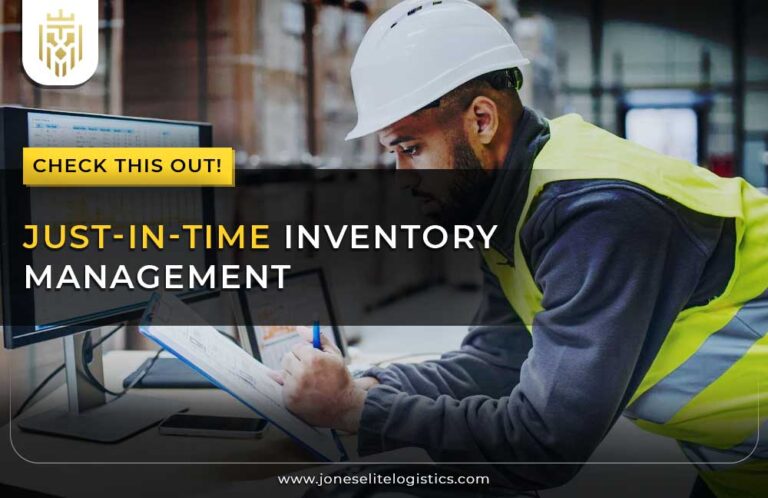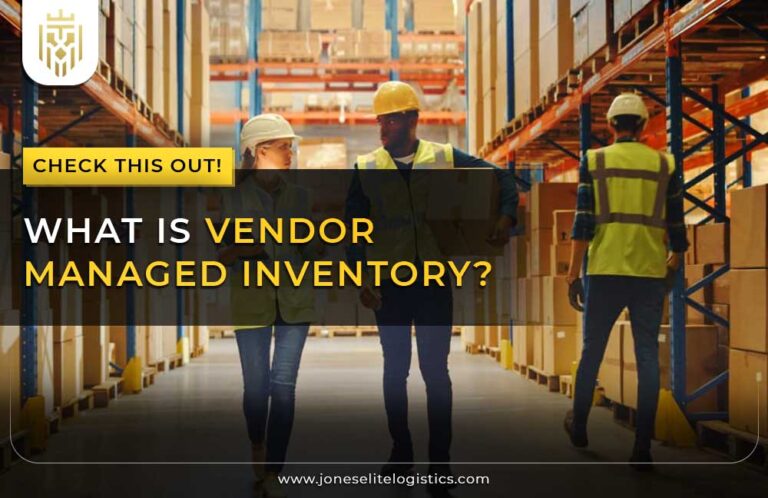Bonded Warehouses:
This historic structure, the Stanley Dock Tobacco Warehouse in the Port of Liverpool, completed in 1901, was, in fact, the largest brick under one roof ever constructed. Such warehouses also have functional uses and are architectural treasures bearing witness to the centuries of growth of trade and commerce the world over.
Bonded warehouses are areas where imported goods may be stored and where customs duties are not paid at the time of storage as would mostly be expected. These warehouses are utilized in storing goods that are waiting to be re-exported or those that are allowed for local use only after paying a certain duty eligible businesses can enjoy the benefits of these warehouses. The design of this system is to facilitate proper control of stocks and to make proper control of cash.

How does a Bonded Warehouse work:
Products are kept in a bonded warehouse with customs control of the goods and full compliance with all current rules. Goods imported into a member country may be relieved from customs duties through various ways, through warehousing facilities importers pay customs duties at later stages, that is either through re-exportation or consumption within the member country. It smooths revenue flow, inventory, and transportation costs, thus helping businesses operate more efficiently and minimize costs.
Who needs Bonded Warehouses:
It is necessary to stress that bonded warehouses are crucial for importers, exporters, and manufacturers, as it is associated with the development of large amounts of international trade. It helps companies involved in exports that want to delay paying duties and maximize their control of inventory cycles across multiple locations, especially in the context of importing and exporting goods in the global economy. Business entities that deal with expensive products or goods that are considered sensitive based on their nature, temperature, and other factors benefit from bonded warehouses most significantly.
Types of Bonded Warehouses:
Bonded warehouses can be classified into various types: there is public bonded warehouses, private ones, and specialty bonded warehouses. All categories meet different business needs and storage etiquettes due to the difference in demand of various industries as well as the stipulated regulations.
Temporary Storage Areas:
Temporary storage facilities within bonded warehouses enable certain merchandise to be warehoused for a limited time before permission for their release is granted by customs authorities. These are strategic areas for business entities that require short turnaround and effective flow of goods and services for processing since they facilitate a quick turnaround in the movement and processing of goods. Picking is suitable for organizations that need short-term storage to stock before reaching the final point of sale or distribution.

Public Bonded Warehouses:
Every warehouse under a bonded area is a public bonded warehouse; it can be used by any importer or exporter of merchandise, and it is carried out in a bonded warehouse where the businessmen share the area. They are run by third parties to help businesses mitigate the expenses of owning and managing warehouses, they have maximum adaptability as they only provide warehousing services as needed. Public warehouses are ideal for new and medium-scale firms that require cheap ways of storing their goods.

Private Bonded Warehouses:
Private bonded warehouses are bonded warehouses that are owned and managed by parties other than the government. These types of warehouses offer more tailored storage services as well as more precise control over the stored goods, which can be valuable to those companies who require special environments or levels of protection. Private warehouses have specialized services and it is appropriate for voluminous businesses that require storage services often and on a constant scale.

Specialised Bonded Warehouses:
There are different types of bonded warehouses that can handle unique commodities like foods and beverages which are perishable, items that are inflammable, and valuable items. They provide company-specific services and protective structures that address specialized storage needs and help in the preservation of contents. Such warehousing involves several complex and expensive methods of handling goods as they come with advanced technology and safety measures to deal with the strict regulatory frameworks put in place on the various types of sensitive goods.

How bonded Warehouse is different from non bonded warehouses
Firms that use bonded warehouses have their imported products stored in the bonded warehouses until duty is paid, under customs authority. Other types of warehouses include non-bonded warehouses which are facilities used for storing locally consumable goods and products that have not been under the regulation and supervision of customs.
Storage Duration and Restrictions
Bonded warehouses allowed more storage time, which could go up to five years while adhering to the customs laws and being under their supervision. This long-term storage capability is useful for businesspersons who require storing their merchandise for an extended period before selling it or shipping it off to the targeted locations. Non-bonded-warehouses on the other hand typically provide shorter storage periods which are liberally more flexible and do not come with such restrictions and therefore can suit certain ventures that require shorter or temporary storage provisions.
Usage and Suitability:
Bonded warehouses would suit the needs of importers and exporters who require time to pay duties or those who have to observe customs standards. They are especially so for business organizations that engage in international trading activities since they offer heads for inventory and cash flow. Non-bonded warehouses, on the other hand, may need some basic amenities to accommodate the various business needs with none of the complications arising from customs, making them ideal for local use.
Cost Implications
Customs-related expenses include tariffs and other expenses associated with storage in bonded warehouses such as charges extending beyond the normal storage period required by customs authorities. But they provide duty assistance which means the companies organize their payment in such a way that they have more time to pay their duties hence having more time to generate the cash this means they have less initial capital required. Non-bonded warehousing typically comes at a lower provision as they do not require customs or exaggerated legal formalities; nonetheless, they do not offer the advantages of duty invocation.
Custom Duties and Taxation:
Custom duties and taxes are also paid here in smaller amounts and at a later date than in other warehouses since the final amount is only paid once the goods are used for domestic consumption or exported again. It can also help enhance the timing of cash receipts and cut on early obligations that may prove financially draining. Other characteristics are that in the non-bonded warehouse, duties and taxes are payable on arrival and this puts a lot of pressure on cash flow and tops up the initial capital required by businessmen.
Benefits of Bonded Warehouse:
There are many advantages, namely security, convenience, long-term storage, a useful estimate of the supply and demand of certain goods, better cash circulation, and satisfied customers.
Improved Security:
Bonded warehouses are usually associated with additional security measures so that goods are covered with unique customs control. This will help minimize theft and damage of the goods, as well as keep track of losses, which will be beneficial to any business that stores valuable or sensitive products. Due to stricter security measures that are required in bonded warehouses, any high-value or high-risk items are usually stored in them.

Greater Convenience:
Companies share benefits as bonded warehouses make it easier to stock goods without paying duty immediately, or until when they are required. These features allow businesses to respond better to the needs of the market and address their stock without constantly paying duties to the government. It also gives protection against risks in the supply chain such as limited time available for storage of goods also gives protection to the business, in instances of risks within the supply chain.
Long Term Storage Solution:
Bonded warehouses act as more of a long-term storage facility whereby entry of goods can be made but these are stored for instance for up to five years under customs supervision. This is especially useful to the merchants that deal with goods that have limited demand, particularly during specific seasons of the year or goods that may have to be warehoused until the required market conditions are favorable. Bonded warehouses allow the business involved to have extra storage for products, and thus the company can manage its stock more effectively.

Anticipate Supply and Demand:
Through bonded warehouses, businesses can acquire inventories in advance to meet the demand of their consumers but without incurring immediate duty fees. This capability enables businesses to have a consistent cash inventory, minimize stockouts, and flatten the consumption cycle better than the earlier system. The fact that the goods can be stored and not pay duties immediately also helps in financial management in that one can have stocks to meet consumers’ demand during fluctuations in the market.
Improve Cash Flow
Bonded warehouses bring some flexibility in the payment of duties so that the cash requirement for such purposes is paid after goods are out of the warehouse. This deferral does help lighten the load to a large extent and offers the money that can be invested in other aspects like marketing and development, expansion of the business, etc. Another financial advantage of using bonded warehouses includes the aspect of adequate control of overflow of cash.
Improved Customer Experience:
Bonded warehouses improve consumer satisfaction since they provide a steady inventory of products, minimize and eliminate long queues, and guarantee timely delivery. This way every business could work towards maintaining proper stock levels and in turn deliver proper services to its customers. Benefits arising from the application of bonded warehouses include accessibility, convenience, and improved supply chain responsiveness.

Growth of Bonded Warehouse in India:
Recent trends that have influenced the development of India’s bonded warehouses include global imports, policies by the government, and changing market demands for efficient supply chain means. Induced by the growing liberalization, globalization, and export promotion policies of the government, the logistics and discipline of bonded warehouses are increasingly in demand in India. As for the supportive environment, the development of infrastructure and supporting measures has even uplifted the use of bonded warehouses in India, reflecting their importance in the spheres of trade and commerce.
Conclusion:
It is important to understand that bonded warehouses fulfill a very important need for more efficient international trade; there are several advantages that can be attributed to bonded warehouses including duty suspension, improvements in cash flow, and security. The tremendously valuable contribution that they have made in the realignment and the enhancement of supply chain operations cannot be doubted. The need for bonded warehouses remains evident through the steady expansion of these facilities in India to help support the growing trade functions and give businesses insight into their inventory and financial positions.
FAQs
1) What is a bonded warehouse?
A bonded warehouse is a warehouse where imported goods may be deposited without the payment of customs duties and taxes has been made. It lets the businesses pay duties at a later date upon delivery of the products in the domestic market or for exportation again.
2) What are the benefits of the bonded warehouse?
Advantages of bonded warehouses that can be accorded to businesses include; duties suspension, increase in cash flow, security, and control of stocks.
3) How does a bonded warehouse work?
Bonded warehouses are effective since they involve the storage of imported goods in a stored location under customs control hence allowing companies to delay payment of duties on the goods until such a time as the goods are utilized in their local markets or exported to other markets.
4) What are the types of bonded warehouses?
There are four main types of bonded warehouses; public bonded warehouses, private bonded warehouses, and specialized bonded warehouses which focus on particular types of goods such as perishable goods and hazardous goods.







